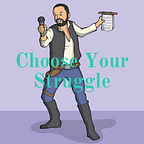The United States version of democracy was enacted as a grand experiment. The founders, whose words we dissect and obsess over, whose original intent many still swear they attempt to judge all current actions and ideas from, believed themselves to be creating a just and equitable government. They were wrong, of course, we can say that with certainty now, for all the racist, sexist, and classist reasons that have been examined thoroughly ever since. But their idea of a representative democracy lives on.
“That government is the strongest of which every man feels himself a part.” Thomas Jefferson, who is often celebrated in my beloved city, said these words. And they are why, almost two-hundred and fifty years after our nation’s founding, we are still told by commentators, activists, and elected officials alike, that the best way to participate in our democracy besides the yearly act of voting, is to contact our legislators.
This idea is what motivated me, for the last four months, to faithfully play my part. As a Jewish man raised in an Israel-supporting household, I want my representatives to know there are some in our camp who do not support the wholesale destruction in Palestine. Specifically, I want my elected officials to join their colleagues, including Pennsylvania Congressmember Summer Lee, in imploring the Biden Administration to demand a halt to the massacre of innocent Palestinian men, women, and especially children, and end the boundless arm sales and cash infusions to the ruthless warmonger Benjamin Netanyahu. I want my voice heard just as Thomas Jefferson intended.
Since October I’ve sent over one-hundred emails to my congressmember, Dwight Evans, and our senators John Fetterman and Bob Casey. I’ve visited Dwight Evans’ office where I met with a member of his staff and called twice to follow up. I’ve tweeted, I’ve posted on Instagram and Facebook, and besides a few automatic out of office replies I’ve heard nothing. No calls. No emails. Nothing.
Our elected officials aren’t even bothering to pretend anymore. On a recent rewatch of the political fantasy West Wing, I laughed with my wife when a character dismissed a certain congressmember who was too scared to hold a town hall and face his constituents. That show isn’t even two decades old and yet someone watching for the first time today wouldn’t understand this joke. Somebody please enlighten me because I can’t remember the last time Dwight Evans held a town hall and all we see of John Fetterman is his relentless mocking of protestors.
If we’re honest, we’ve known this truth for generations. Author Edward Abbey, who left this earth just after I was born in the late 1980s, had it right when he said, “Representative government has broken down. Our politicians represent not the people who vote for them but the commercial interests who finance their election campaigns. We have the best politicians that money can buy.”
I know from experience. I grew up in an immensely privledged family in Cincinnati, and if I still lived there, I could get my congressmember on the phone immediately; I have his cell in fact. I knew the mayor, most of city council, and yes, both of my senators. Because that’s what money can buy you in the United States: access.
I’m not going to end this with a hopeful conclusion about how we can get back to what the founders truly wanted because I don’t believe we can. Those days are gone. They’ve been gone for a long time, but Citizens United was the final nail in that coffin. Instead, I have one simple request; admit it. The United States is not a democratic beacon to the world. It’s a Plutocracy. Or a Kleptocracy. A 2014 Northwestern/Princeton study found that we are an Oligarchy. Whatever you want to call it, we’re not a representative democracy. And it’s time we own up to that fact. Because we’re already acting like it.
